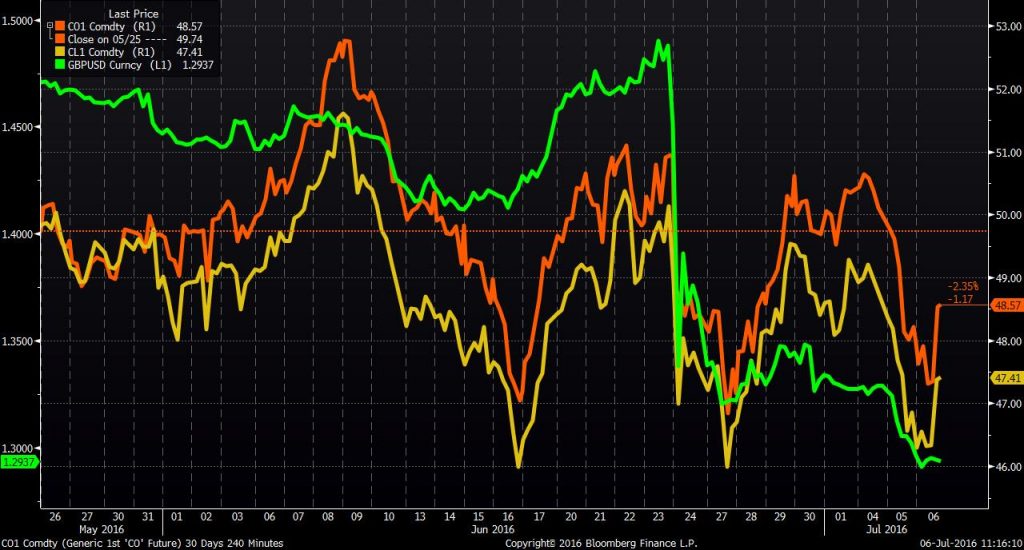Concerns over Brexit continue to send investors to the yen
The yield on Japan’s 20-year government bond fell below zero for the first time ever today as investors flee the pound sterling and the euro in the wake of Brexit. The 30-year yield dropped as low as 0.015%, and the 10-year bond yield hit a record low of minus 0.275%.
Yields took a dip this week following news that M&G Investments and Aviva Investors, two big British asset managers, blocked worried investors from pulling money out of real-estate funds, pushing the pound to a new 31-year low Tuesday. Similar to the pattern that followed immediately after the U.K.’s vote to leave the E.U., investors are looking to sell their pounds and euros in exchange for currencies deemed safer, like the yen.
Investor confidence was further undermined by the Bank of England’s warning on Tuesday that risks it identified related to Brexit were already emerging. “There is evidence that some risks have begun to crystallise,” the bank reported, according to the BBC. “The current outlook for U.K. financial stability is challenging.”
The Bank eased special capital requirements for banks, potentially freeing up 150 billion pounds for lending in order to keep the market flush with credit.
The yen rose to around 101 to the dollar Wednesday afternoon, up from around 102 yen to the dollar earlier, as investors perceive Japan’s currency as being safer than even the U.S. dollar.
“The trading is completely pound-driven,” Marito Ueda, a director at FX Prime by GMO, a Tokyo-based foreign-exchange dealer, told The Wall Street Journal. “We are seeing a pattern similar to soon after Brexit. The pound is sold, the euro is sold and the yen is the most widely bought currency amid the risk-off mood.”
The 20-year Japanese government bond yield, which was above 1% as recently as December, fell as low as minus 0.005% Wednesday before returning to positive territory, while the 30-year yield recovered to 0.04%.
After Japanese government bond yields went negative in February, markets have been watching whether the 20-year would follow suit. Japan issued 14.4 trillion yen ($143 billion) in 20-year bonds in the year ended March 2016, according to the Ministry of Finance.
Brexit has had much wider-reaching effects, however, with the Bloomberg Global Developed Sovereign Bond Index showing nearly $10 trillion of securities yielding less than zero, up from about $9 trillion a week ago, reports Bloomberg.
“There’s concern about the stability of the whole system” together with “risk-aversion sweeping through the market,” said Philip Marey, a senior markets economist at Rabobank International in Utrecht, Netherlands. Brexit “has more or less opened a Pandora’s Box, and people aren’t certain what’s coming next.”
The pound and oil
Central banks including the Fed and BOJ have stressed they’re watching for potential fallout in their own economies. The pressure is building for Japan’s central bank to add to stimulus, as an accelerating surge in the yen threatens to wipe out the effects of more than three years of monetary easing. In the U.S., fed fund futures signal only an 8% change of higher interest rates this year.
WTI and Brent crude oils closed higher today at $47.92 and $49.30, respectively, after falling to intraday lows of $45.97 and $47.20.


